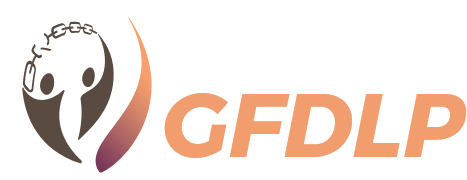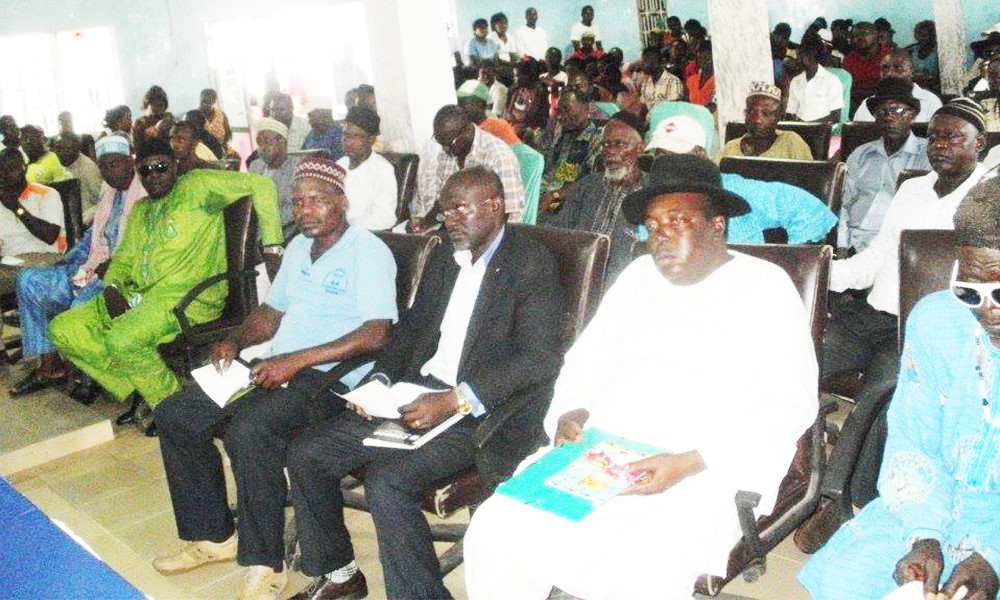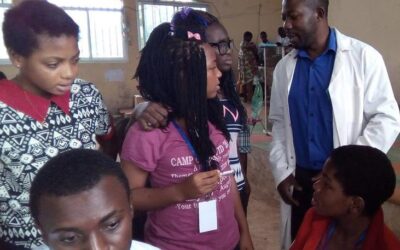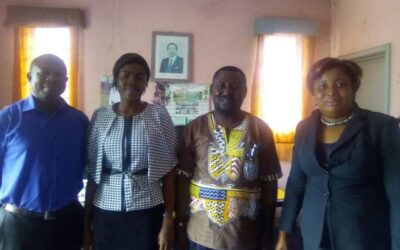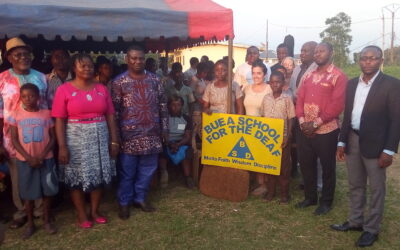Around table conference was held at the King David Square complex Muea to discuss the fundamental rights of Indigenous Communities in Cameroon. It had as objective to identify and discuss fundamental issues for the promotion and protection of social, political, cultural and developmental rights of indigenous communities as a vital strategy for a peaceful Cameroon.
It was also aimed at establishing an agenda for the future promotion and protection of the rights of indigenous communities in Cameroon. The most widespread rights abuse of the indigenes and settlers is that of land.
Indigenous communities are settlers living in a particular place who have settled there for a long time either by migration or naturalization. Dr. Uwem Essia the Regional Director of the Pan African Institute for Development of West Africa, (PAID-WA) explained that, Indigenous people are communities’ tribes and settlement with historic or inherited disadvantages arising from their peculiar culture, habitation and traditional ways that make them different from the larger society or communities around them.
He made it clear that the exclusion of indigenous tribes from mainstream societies most often is as a result of their attachment to their system of knowledge, attitudes and behavior.
“In many countries the protection, rehabilitation and gradual integration of the indigenous population are found in the constitutions. This often includes their rights to land, ancestry and nativity, preservation of traditional cultures and protection of their languages and religions.” Dr Uwem added.
According to the Regional Director, the protection of indigenous communities from excessive exposure can only be complete with the creation of a planned program of integration especially where the indigenous people are traditionally a pastoral community, it may be useful to provide more training and support to turn them into livestock farmers, artisans, and experts in a host of other modern vocations and professions.
In Cameroon, the struggle for the rights of indigenous communities is at its infancy. The issue of land grabbing has been widespread in the country. Some appointed government officials acquire chunks of land for their family members and friends during their term in office without taking in to consideration, the future and the livelihood of this group of people.
Mr Akoh Baudouin the Executive Director of the GFDLP, chief organizer of this event, underscored the growing need for the government to commit resources in the promotion and protection of the rights of indigenous communities in order to avoid the alienation of youths thus preventing the spread of violent extremism through terrorist groups like Boko Haram.
He added that, there is need for a common platform by Civil Society Organizations as it is vital for the promotion of development initiatives in indigenous communities.
The Sub-Divisional Delegate of Agriculture for Buea Sub-Division Mr. Elame Jermaine also emphasized the growing need for youths to get involved in second generation agriculture by moving from small to medium and large scale farming and also to increase the value of their products like the processing of cocoa to chocolate paste, rubbing oil etc., processing of pepper into liquid and cubes, and finally the processing of tomato into paste and package in plastics and tins all as a means to improve on their financial capacity and reduce the rate of unemployment in indigenous communities.
Mr. Marijo Abdulahi Adamou, a representative of the Mbororos in the South West Region, passionately stressed the failure of the government to provide job opportunities to the Mbororos who are considered even by some government officials as not Cameroonians despite their special Status from the Cameroon government as indigenous people.
Minority groups like the Mbororo are facing a lot of challenges as far as land, education and employment is concerned. They are oppressed by the mainstream tribes and even by some government officials. Also, they are not given the opportunities to own land and even when they are awarded settlement, they face lots of opposition.
HRH Molinge Ikome David, Chief of Upper Muea, Buea, co-organizer of this event, called on the Head of State, President Paul Biya to look for an effective strategy to hold land grabbing administrators responsible in order to prevent a future revolution not just between the people and their Chiefs but a nationwide revolution against the State.
He said the Divine Rights of the indigenous people of Fako Division most especially their right to land ownership has been high jacked by some unscrupulous Chiefs who claim to be the representatives of their people while at the same time being flag bearers of corrupt government administrators.
The event ended on a positive note with the GFDLP promising to support this initiative as much as possible. Mr. Akoh Baudouin also promised the participants of convening a yearly event for foreign experts to promote and protect the rights of indigenous communities as an indispensable strategy for putting pressure on the government.
